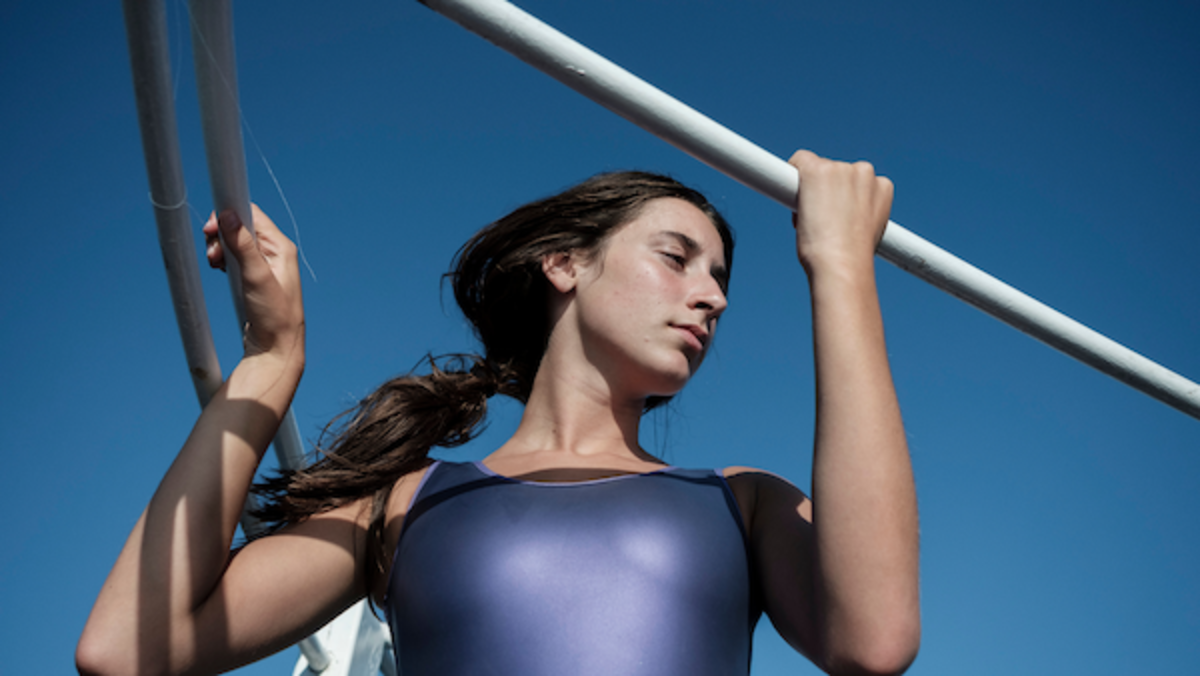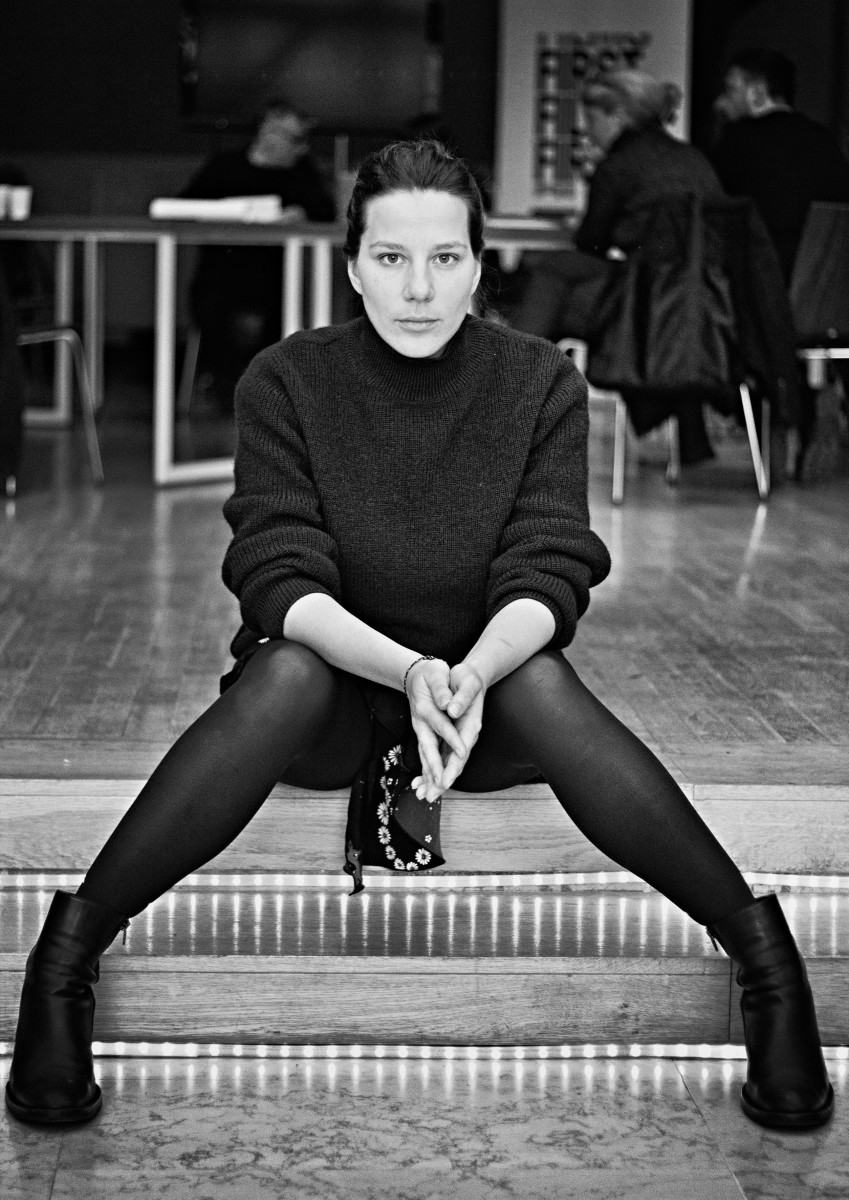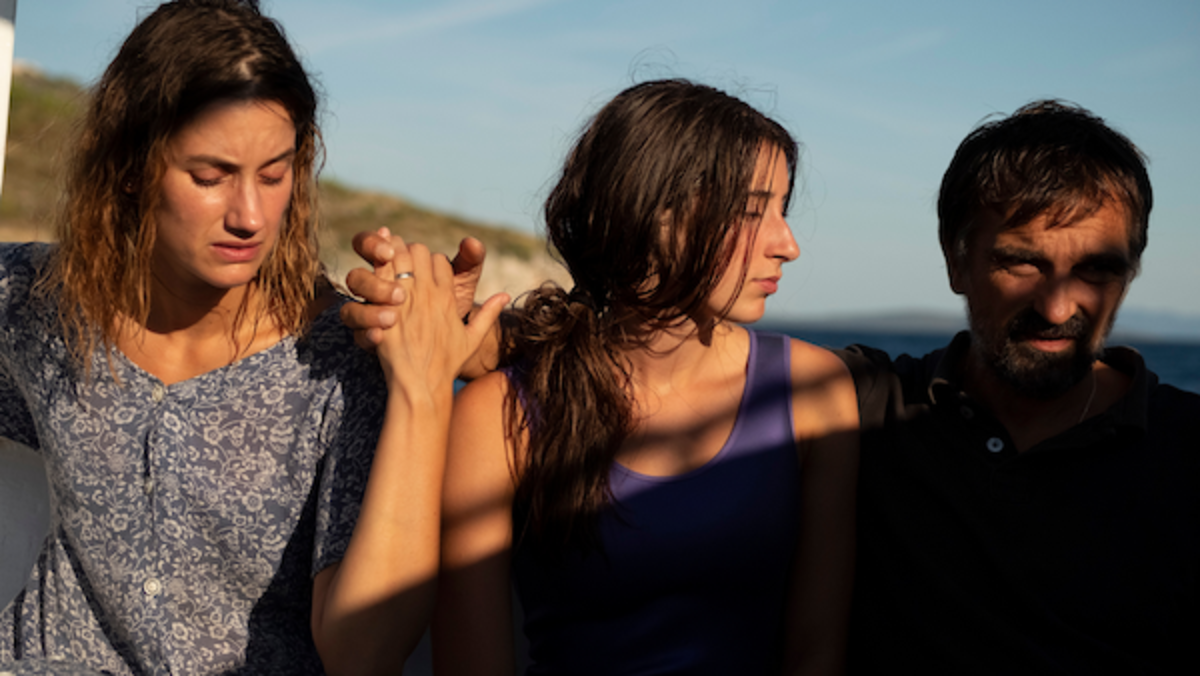My interview with Camera D’Or Cannes Film Festival Winner, ‘Murina’ Writer and Director Antoneta Alamat Kusijanovic

Kusijanovic generously shared her passion for telling the truth about characters and conveying cloaked violence in her film Murina. During our wide-ranging talk we delved into the themes of human nature and the physical and dangerous beauty of nature of water and the land, in conflict with the chauvinism, power, and a teen finding agency.
Julija is like the murina, the moral eel, an animal that will bite its own flesh to break herself free. — Kusijanovic
About Murina: Tensions rise between restless teenager Julija and her oppressive father, Ante, when an old family friend arrives at their Croatian island home. As Ante attempts to broker a life-changing deal, their tranquil yet isolated existence leaves Julija wanting more from this influential visitor, who provides a taste of liberation over a weekend laid bare to desire and violence.
Executive produced by Martin Scorsese, award-winning cinematographer Hélène Louvart (The Lost Daughter, Never Rarely Sometimes Always, and Agnes Varda’s The Beaches of Agnes).
Kouguell: Let’s start by talking about how your short film Into the Blue evolved into Murina. As you mentioned, the feature is not an expanded version of the short. Please elaborate.
Kusijanovic: It’s the same actress and the same character’s name. I wrote the feature months after the short premiered. It came from my feeling that the actress was entering this very sensitive moment in her life and confronting that mentality we both grew up in; it’s a delicate moment of noticing changes both emotionally and physically. I had an opportunity to capture it forever.

Kouguell: You co-wrote the script with Frank Graziano. Tell me about that.
Kusijanovic: We met at Columbia University. We decided to join forces. I had already written one-to-two drafts of the script. Frank brought the male perspective; the ‘second half of the brain’ to the movie. He’s a really great collaborator.
Kouguell: One of the most compelling story aspects was the ever-shifting triangulated relationships between your main characters.
Kusijanovic: It was an interesting process writing these characters. They are real people, they are toned down for the screen, In reality, in Croatia and in many countries, sometimes the reality is too harsh for the screen and I did have to make it more accessible, something not so repulsive to have you stop watching the film.
Ante, the father in Murina is 45. It is the age, where many men feel they haven’t accomplished something; they feel it’s never going to happen again and that’s what defines their life and why a lot of problems surface at that time. Ante, having a friend, Javier, who is such a powerful man next to you, to mirror your success, is a complicated dynamic between the father and Javier. And then having a woman who could still choose between any of them. From one side she has a dilemma – one man is seemingly free of his demons and on the other side is the man she created life with. To be the daughter, Julija, in that triangle of the three lovers; she can see everyone’s weakness — they’re all grown up kids, very harmed; they move by ego, guilt, and remorse.
[Interview with ‘The Power of the Dog’ Editor Peter Sciberras]
Kouguell: Without revealing any spoilers, and in simple terms, Julija seeks independence in order to survive.
Kusijanovic: Julija has to grow up very fast; certain things she assumes and very easily jumps to conclusions of what she sees and thinks she understands and certain things she needs experience to understand. It’s complex because her mother and father do have their reasons why they became this way.
It was very fun to write it. We had to build these four characters equally strong and equally damaged and equally troubled with strong desires and tormented between many possible choices.
Kouguell: The cinematography was incredible, particularly the underwater photography. Tell me about your collaboration with cinematographer Hélène Louvart.
Kusijanovic: Hélène’s amazing. She makes very complicated things very simple, and that’s her strength. She comes from the mountain and I come from the sea. We had very opposite and very compatible views of this world. She is very interested in human behavior and motivation.
We first started with characters, then the space, then the emotional and the oral rhythms, then came the light and shots, and the rest.
We wanted the characters to feel isolated, claustrophobic, tormented – even when they are in wide spaces. Even in the wide shots they feel even more locked in. Under the sun, there is no shade, nowhere to hide. Even in the apartment and on the rocks, this feeling had to happen. They were like raw meat simmering in the sun.

Kouguell: The emotions and rawness escalated in each scene.
Kusijanovic: There’s a level of agitation. The postcard settings are a context that even in these beautiful sunny places, violence happens. I don’t like to reserve the violence for the hidden dark alleys. Violence happens in the open, among many people and outside in the sun, at a holiday location, the beach.
Kouguell: Like the party confrontation in front of the guests.
Kusijanovic: Yes. Everywhere. The violence is always cloaked — into fun, into a so-called mentality. It’s not ‘mentality’ it’s f-ing violence and it’s something that a lot of cultures like to hide behind it.
Kouguell: Into the Blue garnered a great deal of attention at the Berlin Film Festival and led to Martin Scorsese coming on board as Executive Producer.
Kusijanovic: They trusted in me, and it was a great experience. It was nice to get a call from Martin Scorsese and get his notes.
[Interview with ‘tick, tick…BOOM!’ Screenwriter Steven Levenson]
Kouguell: My students, particularly my female-identifying students, always ask how they can break into the industry and get their work seen.
Kusijanovic: There is only one way. Write an amazing story, no one can refuse a good story. No one. There’s no way the story is so good that it can be refused. Now is the time. People are aware more than ever that films directed by women are getting financed. Women don’t need quotas; we just need to get financed. I hope in a couple of years we don’t need to use the terminology “female films” or “female directors”. There are “films” and there are “directors”. Thank you for the question.
MURINA will open theatrically on Friday, July 8th at the Metrograph in New York, and on Friday, July 15th at Laemmle Theaters in Los Angeles with national rollout to follow.